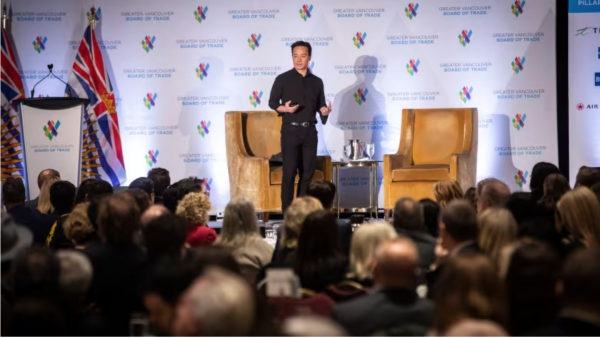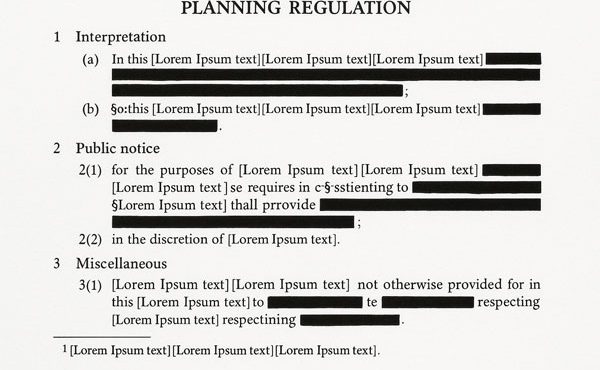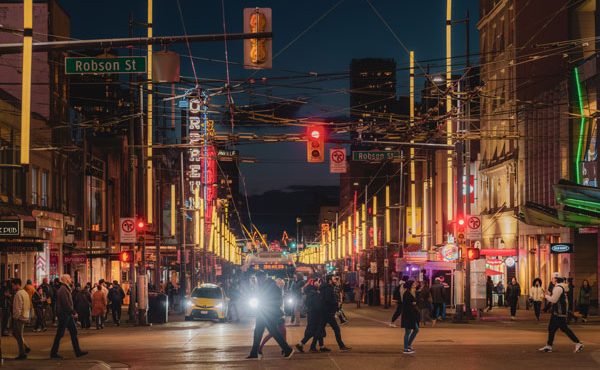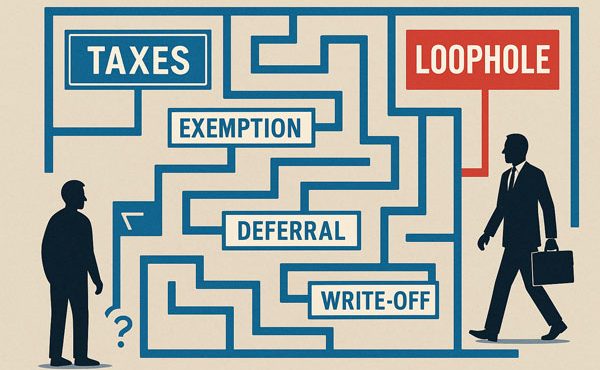
swagger noun
plural swaggers
: an arrogantly self-confident way of walking: an act or instance of swaggering
: arrogant or conceitedly self-assured behaviour
: ostentatious display or bravado
: bold or brash self-confidence
“I envision a Vancouver in the not-so-distant future, that is super exciting. A Vancouver with a renewed swagger.” – Ken Sim
It has been over two months since Mayor Ken Sim gave his first annual “State of the City” address to the Greater Vancouver Board of Trade. Within this, he envisioned a city with “renewed swagger” and an “electric feeling in the air.” Now, language plays a critical part in governing and planning cities, with the built environment straddling a strange and blurry divide between hard-nosed practicality and lofty imagination. Language and metaphors are important to both, as ambiguity makes language particularly useful in the political world. It projects vague, cryptic futures in the hopes of mobilizing a collective vision, while (over)simplifying the complexity inherent to the true problems cities face and the decisions required to solve them. This is what is reflected in Ken Sim’s reference to “swagger”.
Despite its seemingly benign gentleness, it is important to critically reflect on the everyday language used by politicians as they often mask destructive biases. Mayor Sim’s speech will serve as a great case in point: a master class in how language and metaphor can shrewdly support ongoing gentrification and inequalities that plague the city. Let’s deconstruct his speech a little and uncover the history and implied meaning behind Mayor Sim’s words.
open for business idiom
1. Currently operational and accepting business from clients.
“I want to get across…that we’re open for business again.” – Ken Sim
In January 2018, in his much-anticipated keynote speech to World Economic Forum delegates, Donald Trump declared that “America is open for business and we are competitive again.” This was defiantly echoed two years later as a priority amid the pandemic and a plunging stock market, adding that “We can’t have the cure be worse than the problem.” As one can see, this metaphor describing places—cities, countries, etc.—as commercial stores, runs deep and is used in narratives meant to attract “successful” foreign companies and industries. Using the language of commerce speaks to economies and finance, implying that a healthy economy has a positive trickle-down effect on all levels of society: a false narrative that has proven its ineffectiveness.
But to what degree are cities and countries truly like stores? And who are the intended patrons?
With few exceptions, contemporary stores and successful companies gain profit at the expense of others, be it locals or others halfway around the world. Destructive resource extraction practices by “successful” businesses on lands inhabited by marginalized groups are well known, as are abusive and racist labour practices that are the foundations for profit-making enterprises. Large companies have also decimated countless local community businesses and “main streets” through gentrification, all supported by “open for business” narratives. Vancouver is definitely no stranger to these processes with “open for business” narratives simply working to consolidate existing power relations based on racial, class, gender, and socioeconomic exclusions.
revitalized; revitalizing transitive verb
: to give new life or vigor to
“We’ve started work on uplifting and revitalizing Chinatown…we’re also going to launch initiatives to revitalize Gastown.” – Ken Sim
In 1967, Vancouver activists, community leaders, and residents took to the streets to protest a proposed highway extension that would allow access to downtown Vancouver through the east side of the city, across a number of neighbourhoods housing marginalized communities. Several civil rights demonstrations, sit-ins, and picket lines were organized, with protesters ultimately succeeding in forcing the government to abandon the project—unfortunately, not before demolishing the predominantly black and low-income neighbourhood of Hogan’s Alley. Incidentally, the highway proposal was also slated to cut through Chinatown and Gastown, neighbourhoods that qualified for “urban renewal” funding from the federal and provincial governments.
Vancouver was one of many North American cities experiencing protests at the time against similar ‘urban renewal’ programs that ultimately displaced countless low-income, marginalized residents and businesses, decimated historic buildings and neighbourhoods of cultural significance, and increased economic inequality through gentrification practices that raised property values, rent, and the cost of living. Open for business, anyone?
The backlash against the program since that time made talking about “renewal” within cities taboo. People needed a new language. Fast forward a few decades and we see the expansion of ‘r’ words that disguise the same motives: “rejuvenation,” “revival,” and “revitalization”, to name just a few. The occasional non-‘r’ words like “uplift” and “boost’” are added for emphasis. This vocabulary belittles the neighbourhoods in question, implying that the main solution to their ‘problems’ should come in the form of gentrification and the subsequent inflow of money that follows.
Too frequently, these communities are seen as problems in need of solutions that only ’standardized’ forms of gentrification and economic thought can resolve. Add towers (for wealthy patrons) with a sprinkle of commercial street-frontage housing high-end cafes and voilà…revitalized! Adios to those ‘problematic’ folks who gave the neighbourhood its bad reputation.
But who are these problematic people? Certainly, it can’t be the owners of a small restaurant that has been around for over 40 years serving affordable Chinese food to local residents. Nah. And definitely not immigrant seniors. No…of course not. Only the “bad” ones, right? Interestingly, the historical and geographical forces that created these “in need” communities are the same ones deployed to save them. Historically, the language of “revitalization” and other ‘r’ words has served only to naturalize the dispossession of long-time residents and normalize their displacement.
Over 50 years since the Vancouver highway protests, who would have guessed that all that was required to solve our urban problems was for our political leaders to simply open a thesaurus? Now Chinatown and Gastown can truly be renewed….I mean revitalized…perhaps, revived?
placemaking
No entry found
+
revive intransitive verb
: to give new life or vigor to
: to restore to consciousness or life
: to restore from a depressed, inactive, or unused state : bring back
(See ‘revitalized; revitalizing’)
“We’re going to placemake through art to revive our small business districts.” – Ken Sim
A wonderfully insightful chapter in Reinier de Graaf’s recently published architect, verb. The New Language of Building is dedicated to uncovering the origins and evolution of the term placemaking. Cloaked in mystery, the term has no strict dictionary definition. Wikipedia is no help either, opening with a warning that the “article has multiple issues” and is “written like a personal reflection, personal essay, or argumentative essay” in need of “additional citations for verification.”
In response, De Graaf proposes his own satirical definition in the Appendix that covers his dictionary of “profspeak’, used by planners, business people, consultants and other ‘professionals’:
PLACEMAKING, noun. (neologism) an approach to the design of public space which (cl)aims to transform non-places into places. (See ‘non-place’).
Let’s follow De Graaf’s suggestion:
NON-PLACE, noun. A place without inspiring the sense of one.
Definitions as good as any Merriam-Webster could write. What to make of this? Aren’t ‘small business districts’ places by definition? Perhaps not? But will commissioning art really carry these locations over the (imaginary) threshold between non-place to place? Can art truly “revive” them? (See ‘revitalized; revitalizing’)
In the contemporary city, beautification is often used as a carrot to invite gentrification: transformations targeted at wealthier patrons that will ultimately benefit business owners, landlords, investors, and homeowners who can profit from rises in the prices of land and goods. Historically, the areas ripe for beautification are within communities that have dealt with years, maybe decades, of disinvestment and neglect—causing the ‘depressed economic value’ from which others can profit. Reasons for disinvestment are complex and varied but are often tied to power structures founded on exclusions. In the words of Leslie Kern, this puts long-time residents “in the unenviable position of feeling like they have to choose between gentrification or a lifetime of crumbling infrastructure and dwindling amenities.”
Beautification measures are a common lure of neighbourhood Business Improvement Associations since such initiatives are low-hanging fruit—getting murals painted and putting a select piece of urban art on the corner can go a long way to bring in new patrons at minimal cost—but it can and does extend to more important things like improved safety measures, transit service and local amenities such as new playgrounds. Who can say no? Again, Leslie Kern: “What we have to recognize is that none of these changes happen in a vacuum and that they are always imbued with meaning shaped by ideas about race, class, gender, age, and sexuality.”
It’s also important to recognize that gentrification-via-beautification also commonly comes in other implicit forms like attracting events, festivals and other enterprises that can be branded by corporate entities.
Host noun
: a country, government, etc. that agrees to allow an outside business, organization, group of people, etc. to operate, function, or live within in its boundaries, jurisdiction, or population
“We’ll also look at accelerating the hosting of major events in our city…” – Ken Sim
(See ‘open for business‘ and ‘placemaking‘)
Okay, I think we get the idea….but let’s throw in one more for good measure:
”The most significant legacies that emerged from both Expo 86 and the Olympic Games were not just about infrastructure, buildings, or sports…It was about the energy and spirit that permeated our city. And this is the same energy we need as we build the future of our city.” – Ken Sim
Lest we forget the displacement of unhomed people, environmental damage, and human rights concerns associated with these events. (See ‘open for business’)
In 1980, George Lakoff and Mark Johnson persuasively described the metaphors we live by. More recently, Robert Sapolski wrote powerfully about the metaphors we kill by. Both ultimately show how language plays a critical role in shaping our perceptions of the world around us and how politicians and other powerful actors often employ language to mask their true intentions and support ongoing pro-gentrification injustices that plague our cities. As such, it is important for us to critically reflect on the everyday language used by those in positions of power, and to question the implied meanings behind their statements. By doing so, we can work towards creating more equitable and just societies that prioritize the well-being of all members, rather than just those with the most power and privilege.
Within this context, Mayor Sim’s ‘swagger’ offers us an important lesson. Not of hope, inspiration, or imagination, but of the Arrogance, Brashness and Conceitedness—or should I say the ABCs—of the language of inequality.
***
Erick Villagomez is the Editor-in-Chief at Spacing Vancouver and teaches at UBC’s School of Community and Regional Planning. He is also the author of The Laws of Settlements: 54 Laws Underlying Settlements Across Scale and Culture.





2 comments
I assume in Erick Villagomez’s ideal city, there are no concerts and events, no one has a job, and nothing is ever improved.
Who wouldn’t want to live there?
It’s interesting that you complain about Ken Sim being regressive when you through your lot in with Colleen Hardwick, the candidate of wealthy homeowners, who wanted all the homeless into a concentration camp in Hastings Park.
Via above comment. Welcome to my world Erick